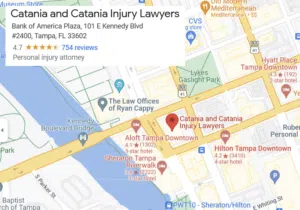
In the legal world, discovery refers to information that relates to a case. Discovery can be documents, reports, testimony, and any other information that could be relevant to proving or disproving a case.
In civil lawsuits in Florida, discovery is a phase and process in a case that can help you get the information you need to win your case. If you have legal questions, then make sure you speak to an experienced attorney.
Table of Contents
Florida Rules of Civil Procedure
In Florida, all civil lawsuits must follow The Florida Rules of Civil Procedure. In these rules, you will find how lawsuits must be filed, and what the timelines are for any responses.
Once a lawsuit is filed, the discovery process follows shortly after. During this process, both sides in a case are expected to share any relevant information so the legal issues are clear and there are no surprises at any trial.
It is important to get all of the necessary discovery to help strengthen your case. It may take months to get all of the discovery that is necessary to litigate a case. Make sure you don’t leave out any relevant evidence when you are seeking money damages. The discovery process helps prevent this from happening.
The Main Types of Discovery
In Florida, you will find four major types of discovery in civil lawsuits, they are:
Depositions
A deposition is sworn and recorded testimony that happens before a trial. Depositions usually occur at an attorney’s office outside of court. The rules of evidence apply at depositions. There is no judge at a deposition, but objections will be ruled on by the judge later.
Interrogatories
These are written questions each side submits to gather basic information about the case to determine the agreed-upon facts.
Requests for Production
These are discovery requests to obtain specific documents. These can include things such as medical records, police reports, or business records.
Requests for Admission
These are written requests each side submits to admit to certain allegations or statements. These written requests help determine the conflicting issues.
If a party during discovery is worried that the other side will use discovery in an inappropriate way, then the party can request the court for a protective order to prevent abuse. The judge can limit what is discoverable through this order, and how certain discovery may be examined. Anyone who fails to follow the rules regarding discovery faces sanction from the court.
How Discovery Is Important in a Personal Injury Case
The discovery process is meant to inform both sides of the facts and relevant issues in a case. Once this information is obtained by both sides, they can then make more informed decisions about whether to take their case to trial or not. Depending on the information obtained during discovery, it might be more beneficial to settle a case than having a trial.
To strive for efficiency, courts will always look to encourage parties to settle when possible. If all cases went to trial, then there would be a decades-long backlog of trials.
There are many advantages to both sides of coming to an agreement as opposed to trying a case. Two of the most impactful reasons for resolving a case are risk management and the ability to guarantee an outcome.
Discovery helps you realize what direction your case should go.
Examples of Discoverable Materials
In civil cases, there are several types of information that can be obtained during the discovery phase, they include:
- Police records and written reports
- Medical records and written reports
- Property damage records and written reports
- Photographs of the accident scene
- Phone and text message records
- Relevant business records
- Video evidence
- Electronic discovery such as emails
Discovery can also include other evidence. Make sure you know what information you are looking for so you can file the proper discovery demands.
Florida State Civil Procedure Limits on Discovery
The Florida Rules of Civil Procedure sets boundaries on what can be obtained in discovery. Only relevant, non-privileged information can be obtained during discovery in Florida. Relevant information is any information that can help explain an issue in a case.
Privileged information is information that is protected by law such as communications between an attorney and client as well as attorney work product. Work product includes notes or information an attorney prepared in anticipation of litigation. If you have legal questions call Catania & Catania Injury Lawyers at (813) 222-8656 or contact our Tampa personal injury office to learn how we can help.




